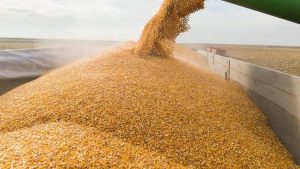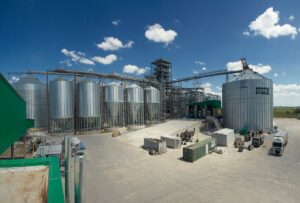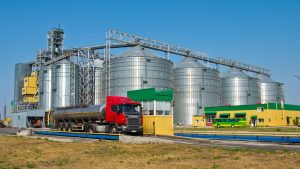Kernel increased profits by 42% and halved debt

Ukrainian agroholding Kernel increased its profit by 42% and also halved its debt in the 2025 fiscal year.
Andriy Verevsky’s Kernel increased its revenue to $4.1 billion in the 2025 fiscal year and halved its debt, Forbes reports.
The company also used soybeans and rapeseed for the first time, thereby diversifying its processing.
Kernel’s revenue increased by 15% to $4.115 billion, compared to FY2024. Profit increased by 42% to $238 million. EBITDA increased by 22% to $466 million.
The company’s net debt decreased by almost half to $143 million. At the same time, the company invested almost half as much: the amount of investment was $73 million. Kernel also completed the payment of $300 million on Eurobonds
According to the majority owner and chairman of the board of directors of Kernel Andriy Verevsky, the stability of the Black Sea export corridor was crucial for the results of the agricultural holding.
The EBITDA indicator of the oilseed processing segment fell by 34% to $148 million. Verevsky noted that this was a direct consequence of the deterioration in the profitability of processing, caused by a 20% drop in the sunflower harvest in Ukraine to 11.8 million tons. In fact, due to the shortage of sunflower, Kernel added soybeans and rapeseed to its processing for the first time. At the same time, the loading of the plants remained at the level of 87%.
The company exported 8 million tons of agricultural products – at the level of the 2024 fiscal year. Sales of vegetable oil decreased by 5% – to 1.4 million tons. Sales of meal due to the use of soybeans increased by 14% – to 1.4 million tons.
The share of the agricultural holding in Ukrainian exports of sunflower oil remained at 27%, in the world – 10%. Kernel handled 36% more grain – a record 9.1 million tons.
The EBITDA indicator of the infrastructure and trading segment increased by 7% – to $218 million. This indicator in agriculture increased by 8% – to $184 million. The reason was high world prices for grain and oilseeds, as well as a decrease in average operating costs per hectare by 13% due to the dryness of the crop.
USM previously reported that Kernel shares had risen 45% year-to-date.





